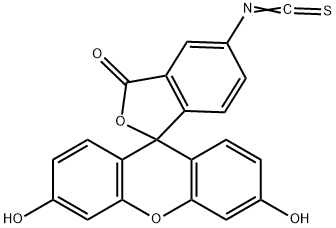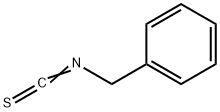Guanidine thiocyanate
Synonym(s):Guanidine thiocyanate;Guanidine isothiocyanate;GTC;Guanidinium thiocyanate;Guanidinium isothiocyanate
- CAS NO.:593-84-0
- Empirical Formula: CH5N3.CHNS
- Molecular Weight: 118.16
- MDL number: MFCD00013027
- EINECS: 209-812-1
- SAFETY DATA SHEET (SDS)
- Update Date: 2025-09-25 17:15:13

What is Guanidine thiocyanate?
Chemical properties
White cryst.powder
The Uses of Guanidine thiocyanate
Guanidine thiocyanate is a useful tool for RNA isolation and protein solubilization. It is involved in the quantification of mRNA from hepatocytes. It acts as a medium for blood smaple lystae in order to maintain the integrity of nucleic acid. It is a chaotropic agent, mainly involved in the extraction of DNA and RNA. It is utilized to deactivate the influenza virus.
The Uses of Guanidine thiocyanate
Potent protein denaturant used in isolation of intact DNA, RNA.
The Uses of Guanidine thiocyanate
Guanidine thiocyanate has been used as a component of the stabilization buffer for RNA lysis. It can be used for deactivation of endogenous RNases leading to denaturation of nucleoprotein complexes. It is also suitable for denaturation of macromolecules such as nucleic acids and proteins and for RNA isolation.
General Description
Guanidine thiocyanate is chaotropic salts which lyse cells and along with nuclease binding matrix it is also seen to inhibit nuclease activity during extraction of DNA. It works as a strong RNase inhibitor in extraction buffers.
Hazard
Irritant.
Flammability and Explosibility
Not classified
Biochem/physiol Actions
Guanidine thiocyanate (GTC) plays a role in protein denaturation. It is involved in separation of ribosomal ribonucleic acid (rRNA) from ribosomes and denatures ribonuclease (RNase). GTC has been studied in the unfolding and refolding of fluorescent proteins (FP). It can be used along with phenol and chloroform for extraction of RNA.
Appearence
White to slightly off-white crystalline powder
Characteristic
Guanidine Thiocyanate is a chaotropic agent commonly used in molecular biology research for the extraction of nucleic acids. Its high efficacy in denaturing proteins makes it particularly valuable in the isolation of RNA, as it helps to inactivate RNases that would otherwise degrade the RNA during the extraction process.
Properties of Guanidine thiocyanate
| Melting point: | 120-122 °C(lit.) |
| Density | 1.103 g/mL at 20 °C |
| vapor pressure | 0Pa at 20℃ |
| refractive index | n |
| storage temp. | 20-25°C |
| solubility | H2O: 6 M at 20 °C, clear, colorless |
| form | Crystals or Crystalline Powder |
| pka | 12.5[at 20 ℃] |
| color | White or colorless |
| Specific Gravity | 1.152 |
| PH Range | 4.8 - 6.0 |
| PH | 4.8-6.0 (1420g/l, H2O, 20℃)(saturated solution) |
| Odor | Odorless |
| Water Solubility | Soluble in water and ethanol |
| Sensitive | Light Sensitive |
| BRN | 3563461 |
| Stability: | Stability Stable, but light sensitive. Incompatible with acids (contact releases very toxic gas), strong oxidising agents. |
| CAS DataBase Reference | 593-84-0(CAS DataBase Reference) |
| EPA Substance Registry System | Thiocyanic acid, compd. with guanidine (1:1) (593-84-0) |
Safety information for Guanidine thiocyanate
| Signal word | Danger |
| Pictogram(s) |
 Corrosion Corrosives GHS05  Exclamation Mark Irritant GHS07 |
| GHS Hazard Statements |
H314:Skin corrosion/irritation H412:Hazardous to the aquatic environment, long-term hazard |
| Precautionary Statement Codes |
P260:Do not breathe dust/fume/gas/mist/vapours/spray. P273:Avoid release to the environment. P280:Wear protective gloves/protective clothing/eye protection/face protection. P303+P361+P353:IF ON SKIN (or hair): Remove/Take off Immediately all contaminated clothing. Rinse SKIN with water/shower. P305+P351+P338:IF IN EYES: Rinse cautiously with water for several minutes. Remove contact lenses, if present and easy to do. Continuerinsing. |
Computed Descriptors for Guanidine thiocyanate
| InChIKey | ZJYYHGLJYGJLLN-UHFFFAOYSA-N |
Guanidine thiocyanate manufacturer
Ayonex Labs Private Limited
Innovative
New Products
4,4-Difluoropiperidine hydrochloride tert-butyl 9-methoxy-3-azaspiro[5.5]undecane-3-carboxylate Indole Methyl Resin N-Isopropylurea N,N-Dicyclohexylcarbodiimide(DCC) MELDRUMS ACID 5-METHYLISOXAZOLE-4-CARBOXYLIC ACID Magnessium Bis glycinate Zinc ascorbate 1-bromo-2-butyne 2-acetamidophenol 9(10H)-anthracenone Erythrosin B, 4-Piperidinopiperidine 2-((4-morpholinophenylamino) (methylthio) methylene) malononitrile 2,4-dihydroxybenzaldehyde 3-(4-morpholinophenylamino)-5-amino-1H-pyrazole-4-carbonitrile Methyl 2-methylquinoline-6-carboxylate 2,6-dichloro-4-nitropyridine 4-Bromo-2-chlorobenzonitrile 2-(benzylamino)acetic acid hydrochloride 4-(tert-Butoxycarbonylamino)but- 2-ynoic acid 3,4-dihydro-2H-benzo[b][1,4]dioxepine 1-Phenyl-1-cycloprppanecarboxylicacidRelated products of tetrahydrofuran








You may like
-
 Guanidine thiocyanate CAS 593-84-0View Details
Guanidine thiocyanate CAS 593-84-0View Details
593-84-0 -
 Guanidine Thiocyanate (CAS Number: 593-84-0), 1 kg / 5 kg / 10 kg / 25 kgView Details
Guanidine Thiocyanate (CAS Number: 593-84-0), 1 kg / 5 kg / 10 kg / 25 kgView Details
593-84-0 -
 500gm Guanidine Thiocyanate PowderView Details
500gm Guanidine Thiocyanate PowderView Details
593-84-0 -
 100 g Guanidinium Thiocyanate, For Use For Research Purposes OnlyView Details
100 g Guanidinium Thiocyanate, For Use For Research Purposes OnlyView Details
593-84-0 -
 INDIAN White Guanidine Thiocyanate, Packaging: 5KGView Details
INDIAN White Guanidine Thiocyanate, Packaging: 5KGView Details
593-84-0 -
 Guanidine Thiocyanate powderView Details
Guanidine Thiocyanate powderView Details
593-84-0 -
 Guanidine iso Thiocyanate, Bio-Tech GradeView Details
Guanidine iso Thiocyanate, Bio-Tech GradeView Details
593-84-0 -
 Reagent Grade Guanidine Thiocyanate CasView Details
Reagent Grade Guanidine Thiocyanate CasView Details
593-84-0
